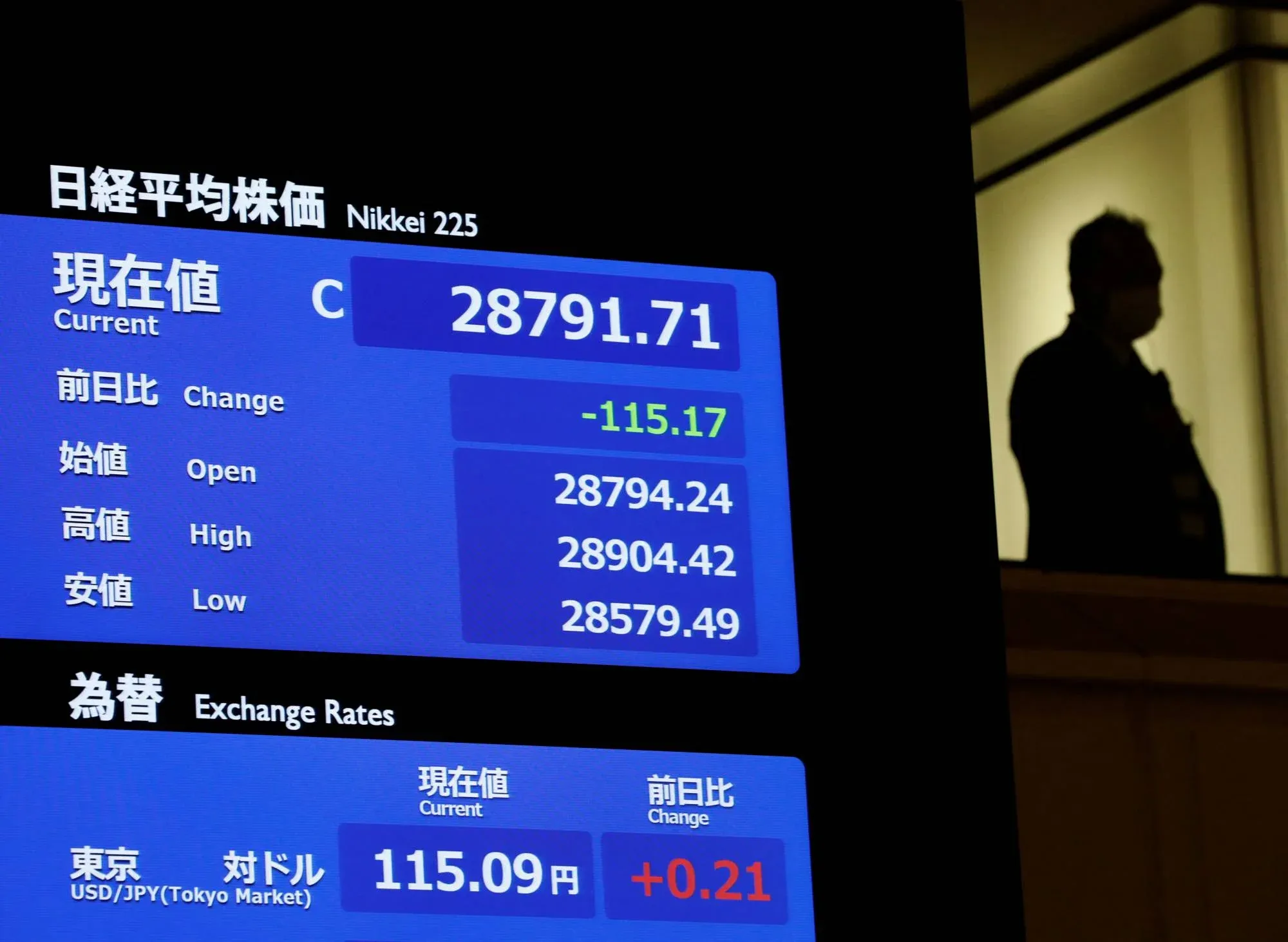In a notable turn of events, the Japanese yen gained strength against major currencies including US-Dollar, Great British Pounds and EURO on Thursday following the release of economic data that increased the likelihood of the country’s central bank raising interest rates. According to the Financial Times, the yen strengthened by 0.5 per cent to ¥154.10 after data revealed a contraction in Japan’s economy during the first quarter.
This rally in the yen was fueled by market expectations of a potential shift in monetary policy by the Bank of Japan (BOJ). The prospect of higher interest rates tends to attract investors seeking higher yields, consequently boosting demand for the yen.
Meanwhile, on Wednesday, the US consumer price index rose less than anticipated, which fueled speculation that the Federal Reserve might opt for rate cuts. This development further bolstered the yen’s appeal as a safe-haven asset, contributing to its upward trajectory.
Despite the yen’s ascent, Japan’s benchmark Topix index edged down by 0.4 per cent. This decline was attributed to concerns over the country’s economic performance, exacerbated by the contraction in GDP reported earlier.
Conversely, stock markets across the rest of Asia experienced gains. The Hang Seng Mainland Properties index, in particular, surged by 4.4 per cent. Reports indicating that China’s government was contemplating purchasing properties to convert them into public housing buoyed investor sentiment in the region.
The Market Performance Snapshot:
- Hang Seng: The index rose by 0.5 per cent, reflecting a year-to-date (YTD) gain of 12.4%.
- CSI 300: The index recorded a 0.3 per cent increase, with a YTD performance of 6.0%.
- Topix: Despite the decline, the index has seen a significant YTD gain of 15.0%.
- Kospi: The index surged by 0.8 per cent, with a YTD performance of 3.7%.
| Index | Daily Change | Year-to-Date (YTD) |
|---|---|---|
| Hang Seng | +0.5% | +12.4% |
| CSI 300 | +0.3% | +6.0% |
| Topix | -0.4% | +15.0% |
| Kospi | +0.8% | +3.7% |
Source: London Stock Exchange Group (LSEG)
The contrasting performance of the yen and Asian equities underscores the nuanced dynamics shaping regional markets. While concerns over Japan’s economic outlook weigh on investor sentiment domestically, positive developments elsewhere in Asia continue to drive optimism.
As global markets navigate through a landscape marked by economic data releases and central bank policy decisions, investors remain vigilant for further cues on the direction of monetary policy and its implications for asset valuations across different markets.
What you should know
Yen's Rally
The yen appreciated notably against the US dollar, moving to its highest level in several weeks. This appreciation is partly driven by safe-haven buying as investors sought refuge amid global economic uncertainties. Additionally, stronger-than-expected economic data from Japan, including improved industrial output and a modest rise in consumer spending, has bolstered confidence in the yen.
The Bank of Japan's (BOJ) recent statements also played a role. Governor Haruhiko Kuroda reiterated the central bank's commitment to its ultra-loose monetary policy while expressing cautious optimism about the country's economic outlook. This nuanced stance has reassured markets, leading to increased demand for the yen.
Surge in Asian Equities
Simultaneously, Asian stock markets showed robust performance. Major indices, including the Nikkei 225, Hang Seng, and Shanghai Composite, recorded gains. This upward momentum was fueled by a mix of positive corporate earnings reports and encouraging macroeconomic indicators.
In Japan, the Nikkei 225 surged as technology and export-oriented stocks led the charge, buoyed by the yen's strength and positive quarterly earnings from key companies. Investors are optimistic about Japan's economic recovery, particularly in sectors such as electronics and automotive manufacturing.
China's Shanghai Composite also experienced gains, supported by government assurances of continued economic support and stimulus measures. The Chinese government’s recent policy measures aimed at stabilizing the property market and boosting domestic consumption have started to yield results, reflected in the upbeat market sentiment.
Hong Kong's Hang Seng Index benefited from a rebound in tech stocks and a gradual easing of local COVID-19 restrictions, which has rejuvenated investor confidence in the region's economic recovery prospects.
Broader Implications
This concurrent rise in the yen and Asian equities highlights a shift in investor strategies. The yen’s strength suggests a cautious approach, with investors hedging against potential global risks. On the other hand, the rise in stock markets indicates optimism about regional economic recovery and growth prospects.
Analysts suggest that the yen's appreciation could impact Japanese exporters negatively in the short term, as a stronger yen makes Japanese goods more expensive abroad. However, the long-term outlook remains positive, especially if domestic economic indicators continue to improve.
In broader terms, the positive performance of Asian equities could signal a shift in global investment flows, with more capital being directed towards Asia amid rising concerns about the US and European markets' stability. This trend might be bolstered by ongoing geopolitical tensions and trade uncertainties in other parts of the world.
Investor Sentiment
Market sentiment remains cautiously optimistic. While the yen's rise underscores underlying caution, the rally in equities suggests that investors are still finding opportunities in the region. The mixed signals from different asset classes reflect the nuanced and evolving nature of global economic conditions.
The Bottom Line
The strengthening of the yen alongside the rise in Asian equities encapsulates the current complexity in global financial markets. As investors navigate through a landscape marked by economic recovery, policy adjustments, and geopolitical uncertainties, the trends in Asia provide a compelling narrative of resilience and strategic positioning. Moving forward, market participants will closely monitor economic data and policy developments to gauge the sustainability of this positive momentum in the region.
